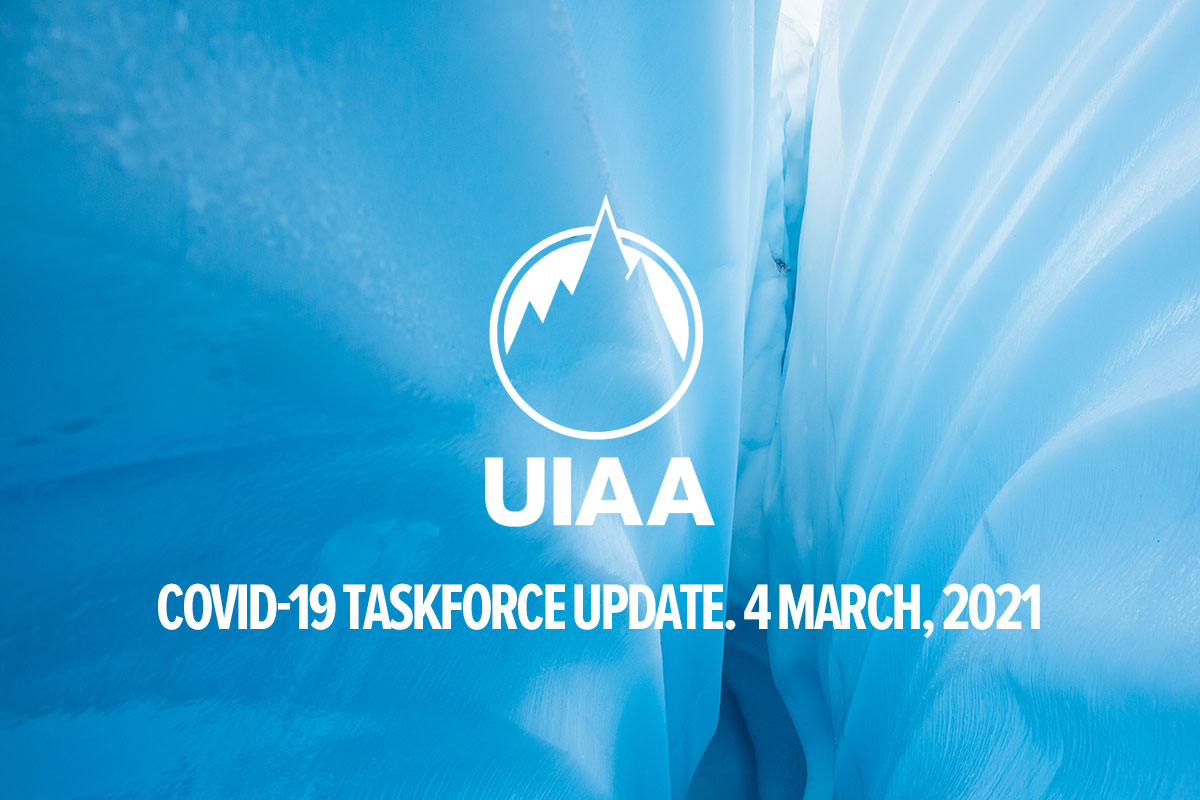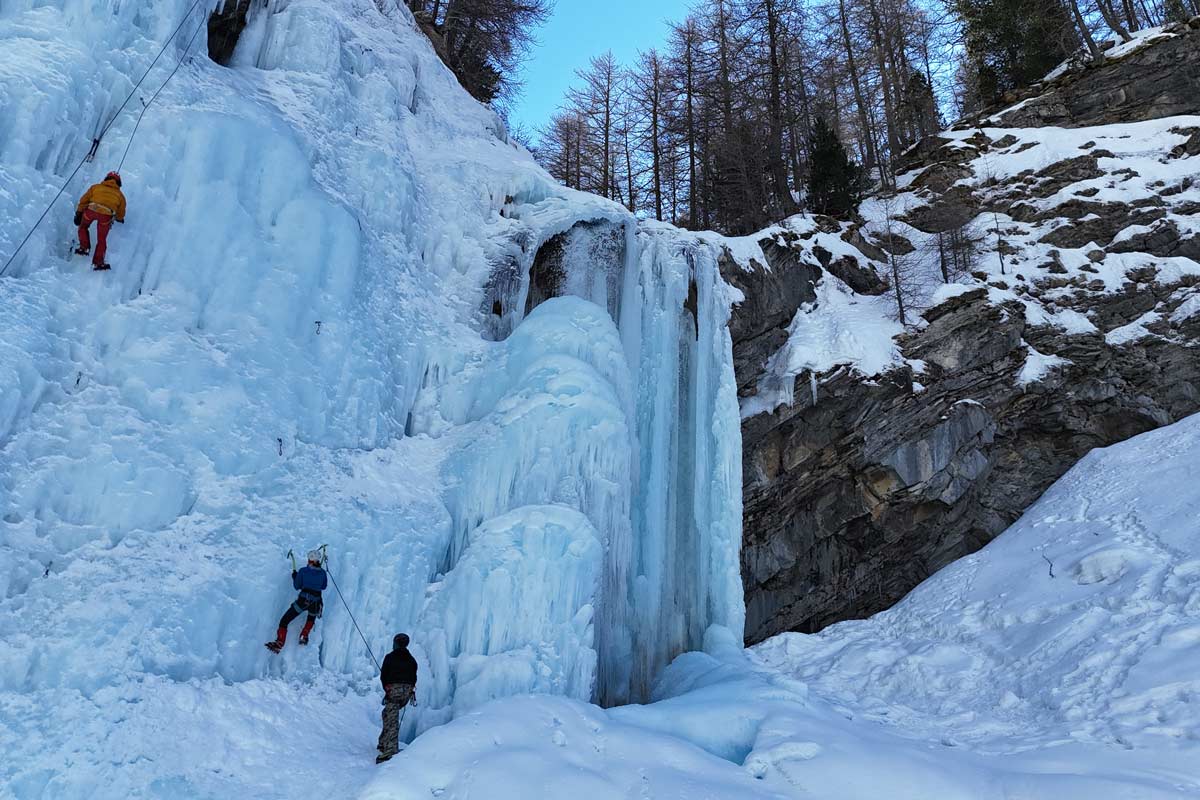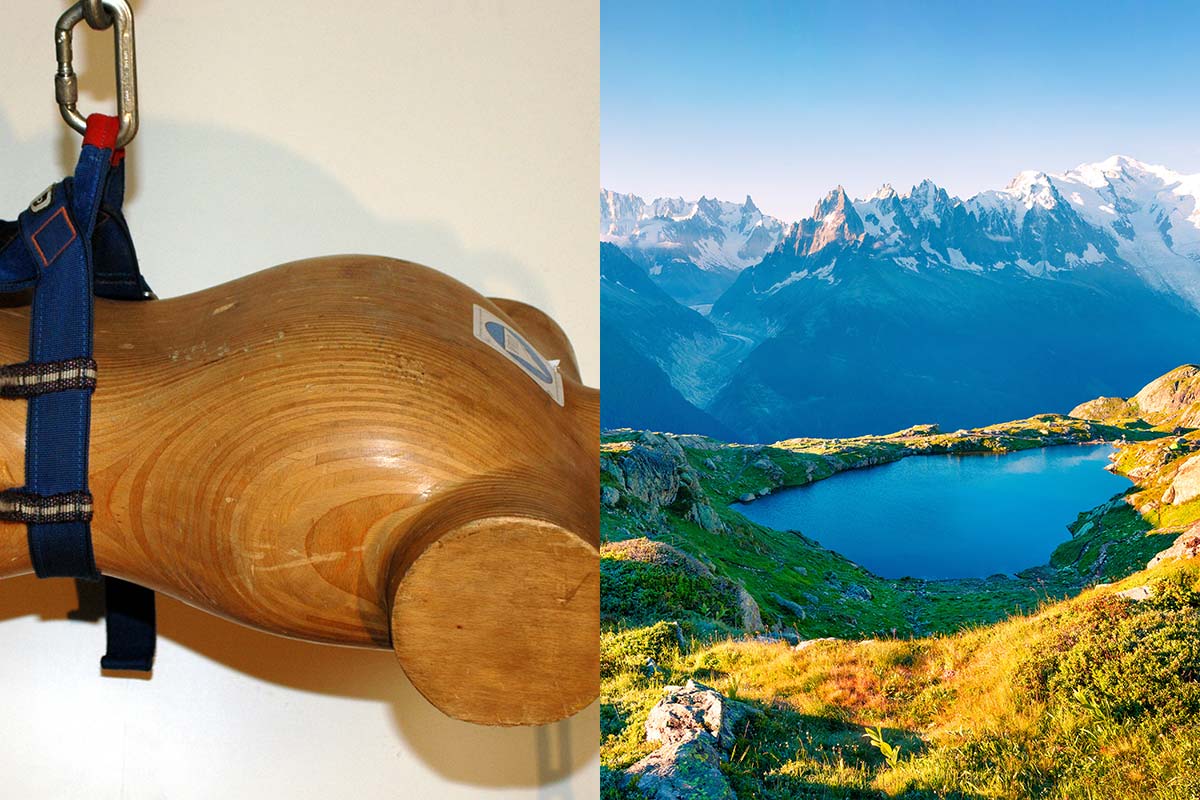The UIAA Covid-19 Crisis Consultation (CCC) Taskforce, set up nearly a year ago to provide guidance on subjects related to climbing and mountaineering throughout the lifespan of the current pandemic, continues to meet regularly online with its members providing updates from their federations and countries.
Below is a summary of resources and information from different countries provided during meetings held since the turn of the year. Please note that information published below is subject to change.
General global themes since the start of 2021 include subjects related to vaccines (national roll outs, supply, skepticism, distribution inequality, debates over pros and cons of mandatory vaccines and of proof of vaccination to gain access to facilities or travel); extended lockdowns, challenges to lockdown measures and in enforcing protective measures and distancing rules; how to ease lockdown measures; incompatibility between some national and regional restraining measures; and the impact of the continued overburdening of healthcare systems.
HIMALAYA
The evolving situation in the Himalaya is of close concern to many climbers, mountaineers and those working in the outdoor industry. The UIAA has been active in this area and recently created a Mountain Worker Initiative (MWI) to help support the expedition and trekking industry. Further details can be found here.
In Nepal, a five-day quarantine period is currently in place for all arrivals from overseas. Covid-19 cases have witnessed a sharp fall in recent months and once the five-day quarantine period has passed, visitors face no restrictions when trekking or climbing. Should the situation continue to improve then the current five-day quarantine may be reduced further.
India has also experienced a decrease in cases with a nationwide vaccination process due to be rolled out from early March. There are currently no restrictions on domestic travel for citizens or expatriates. Some airports (Leh/Ladakh for example) demand a negative RT/PCR test is conducted 72 hours prior to arrival. International travel is permitted only for business purposes. All accommodation in Himalayan regions is open to domestic travellers and expatriates.
All Himalayan regions are open for climbing and trekking and Covid-19 protocols are in place. Likewise climbing gyms. The seven Himalayan states/union territories in India each has its own distinct rules for travellers. Further information can be found here.
In terms of the impact on the Indian Mountaineering Foundation (IMF), training programmes are returning to normal levels and more projects are being conducted online. The IMF is also running its own webinars to encourage dialogue. Membership numbers have decreased although the federation is positive that figures will rise during the ‘recovery phase’.
LARGER FEDERATIONS & EUROPE
Representatives from some of the UIAA’s largest federations including the German Alpine Club, DAV, and the Swiss Alpine Club, SAC, form part of the UIAA Covid-19 Taskforce.
In Germany, the number of infections and mortality rates are gradually decreasing. However the figures need to decrease further before significant lockdown measures can be lifted. The introduction of a step by step process of easing restrictions is expected from mid-March.
Hotels and restaurants are closed. Tourism within Germany is restricted especially with regard to mountaineering and skiing. All ski stations are closed. Ski mountaineering is not forbidden but people must respect specific social distancing measures. The high number of people visiting the mountains on the weekends is a cause for concern. A situation exacerbated by the fact that all climbing gyms are closed and will not reopen before at least the end of March. All huts are closed as well. Considering the above the DAV has made a point of reminding members to respect lockdown measures and reduce their trips to mountain areas.
Travelling to neighbouring countries is restricted due to quarantine regulations which define that even for a short trip (some hours) to Austria people are obliged to complete a five-day quarantine when (re)entering Germany.
The DAV office staff are working at full capacity but mainly from home offices. Large meetings are not permitted and therefore the next General Assembly will be held as video conference. Membership figures despite the challenges still grow.
Restrictions on sport/outdoor activities will be eased very slowly and remain in place for some more months. The expectations for the summer season are quite optimistic but mountaineering in 2021 will be different compared to normal conditions.
In Switzerland, national authorities provide details on the latest live statistics through a dedicated platform. The vaccine programme is underway and generally-speaking and the R-Rate is fluctuating and is currently at 1.01.
Below is a summary of the current situation:
- Leisure, sports and cultural facilities reopened on 1 March
- A maximum five people are allowed to gather indoors (including privately)
- A maximum 15 people are allowed to gather outdoors (previously five people)
- Ski resorts are open. People have to wear protection masks and maintain a distance of 1.5m. Ski resort restaurants are closed
- Restaurants are still closed. If everything goes well, they will be allowed to open on 22 March (the next information on this subject is due on 19 March)
- Hotels are still open. Hotel restaurants are open only for residents
- All shops reopened on 1 March
- Home office working is still strongly recommended where possible
- Wearing a mask in public transportation and in the car is mandatory and every time the distance of 1.5m cannot be kept. This is also valid for outdoor activities.
- Outdoor activities are allowed for groups of up to a maximum of 15 people (including the leader). Protection masks must be worn if the distance of 1.5m cannot be maintained.
- Training and competition are allowed indoors for young people up to the age of 20 (born from 2001).
- Climbing halls must remain closed for people older than 20 years of age.
SAC huts are open and the revised protection concepts for mountain huts are available on the SAC website. The SAC reminds its members regularly on the importance of the consistent implementation of the protection concepts in both the guarded and in the unguarded mountain huts.
These safety measures include compulsory reservation (no reservation = no bed), bringing your own sleeping bag, social distancing (1.5m), hand washing, tables of a maximum of four people and separations between tables and beds.
Hut teams are not allowed to serve meals to day guests due to the closure of restaurants. They can, however, serve meals to guests staying in the hut overnight (like hotels). Takeaways are allowed. Protection concepts for huts and recommendations for mountaineers can be found on the dedicated SAC Covid pages: https://www.sac-cas.ch/fr/covid/ (French); https://www.sac-cas.ch/de/ (German)
The SAC office staff continue to work mainly from home. Membership numbers, like the DAV, are on the increase. The federation will soon have to make a decision on the hosting of its annual General Assembly, whether online or in person.
Entry into Switzerland: People who have spent time in a country or area with an increased risk of infection and then enter Switzerland must go into quarantine. Live information on this subject can be found on the FOPH website .
In the United Kingdom, the British Mountaineering Council (BMC) provides its members with regular updates on government measures and their impact on climbing and spending time outdoors. The latest information, including details on the various easing of lockdown measures, can be found here.
The general principle is a four-step process, with a minimum of five weeks between each step. The roadmap requires a minimum of four weeks data (showing no adverse effects on the R number or hospitalisation rates) after which there will be an announcement that the country will move to the next step, and a week’s notice given to allow preparation for any changes. If any step is delayed, that will push back any future steps.
Before taking each step, the Government will review the latest data on the impact of the previous step against four tests. The tests are:
- The vaccine deployment programme continues successfully.
- Evidence shows vaccines are sufficiently effective in reducing hospitalisations and deaths in those vaccinated.
- Infection rates do not risk a surge in hospitalisations which would put unsustainable pressure on the NHS.
- Our assessment of the risks is not fundamentally changed by new Variants of Concern.
In Belgium, the following update concerns climbing and mountaineering specific topics:
Walking, climbing, mountaineering issues
- Specific guidance is mostly available and regularly updated, but there are cases of uneven compliance with restrictive rules
- Multiplicity of restrictive rules, frequently changing
- Noted regional differences in implementation
- Lack of statistical data base about what works and what does not work
- Economic considerations in conflict with protective health considerations
- Climbing practices at times irreconcilable with distancing rules or size of bubbles
Specific Climbing Regulations in Belgium
- Climbing halls: currently closed – selective access for climbers <12 years old – outlook: not open before end of May (but rules may change either way)
- Clubs/Sections: ample offer of training and skills building activities, but government rules apply – group outings limited to bubbles of five people – masks required on access roads and at stands – distancing rules to be observed – some outdoor climbing structures in the Ardennes are open, not all
- Cross-border activities: Belgian borders closed – when returning, a 10-day quarantine must be be observed – countrywide : restaurants, cafés, bars remain closed
- Local competition climbing and participation on international climbing competitions: on hold
- Trails and walking : social distancing in force – outlook: massive frequentation, also in coastal areas
- Camping and huts: closed – outlook: possibly limited opening in May depending on evolution of infection statistics in March
Belgium – Official coronavirus site
HUTS
Both the Fédération Française des clubs alpins et de montagne (FFCAM) and the Alpine Club of Canada (ACC) also offer resources for members and visitors to find the latest information regarding huts and accommodation run by the respective federations.
With thanks to the UIAA CCC Taskforce members from Belgium, Canada, Germany, India, Nepal, Switzerland and the United Kingdom who contributed to this article.
Further reading: UIAA & Covid-19 Portal



